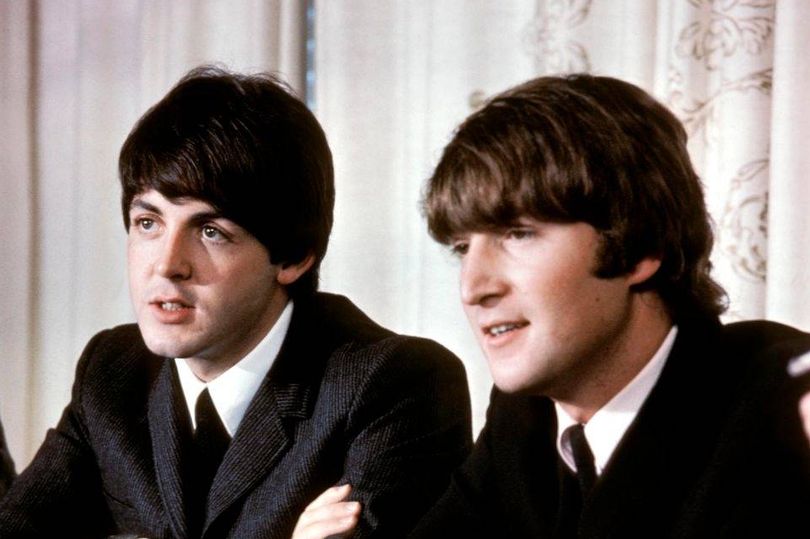The death of John Lennon in 1980 was a devastating blow, not only to his fans worldwide but also to his former Beatles bandmate, Paul McCartney. The tragedy, however, triggered an unexpected and uncomfortable shift in the perception of The Beatles’ legacy, particularly concerning the songwriting contributions of each member.
McCartney and Lennon, who first met at a church fair in 1957, formed one of the most prolific and successful songwriting duos in music history. Their partnership fueled The Beatles’ meteoric rise to fame, producing a string of iconic hits that continue to resonate with audiences today. Together with George Harrison and Ringo Starr, they conquered the music industry.
The Collaborative Genius of Lennon and McCartney
McCartney often reflects on the unique synergy he shared with Lennon. He emphasizes their ability to recognize and seize upon creative sparks, as well as their knack for helping each other overcome creative roadblocks. In his book, The Lyrics: 1956 to the Present, McCartney elaborates on this dynamic, stating that if one was struggling with a line or a direction, the other could offer a solution. This mutual support and inspiration were instrumental in their songwriting process.
Their collaboration often involved one artist adding a crucial element that the other hadn’t considered, elevating the song to new heights. McCartney cites Lennon’s triplet chords in “All My Loving” as a prime example of such a magical addition. He has expressed immense gratitude for the opportunity to collaborate with Lennon, acknowledging that they were the only two people in the world who shared the unique experience of creating such influential music together.
McCartney has reflected on the significance of his achievements, particularly his songwriting partnership with Lennon. He marveled at the idea of being “the guy who wrote with John Lennon,” considering it a monumental accomplishment and a source of immense pride.
The Revisionist Narrative After Lennon’s Death
Following The Beatles’ breakup, the relationship between Lennon and McCartney had begun to heal. However, Lennon’s death ushered in a wave of “revisionism” regarding The Beatles’ history. Some fans and critics started to diminish McCartney’s role in the band’s success, suggesting that Lennon was the primary creative force.
This narrative portrayed Lennon as the sole genius, while McCartney was relegated to the position of a secondary contributor, fortunate to have sung “Yesterday.” Even within Lennon’s own work, such as the song “How Do You Sleep?”, there were lyrical jabs that seemed to reinforce this diminishing view of McCartney’s contributions.
McCartney admitted that this shift in perception led to feelings of insecurity. He worried that future generations might not fully appreciate his role in The Beatles’ success. The constant questioning of his contributions, he felt, was a disservice to their shared legacy.
Fighting for Recognition
To address this imbalance, McCartney began advocating for more prominent recognition of his contributions to Beatles songs that he primarily wrote, such as “Yesterday.” While he appreciated the “Lennon-McCartney” credit, he felt it was important to acknowledge his specific contributions.
He recounted instances where his work was misattributed, such as his poem “Blackbird” being credited to both Lennon and McCartney. He believed that songs he wrote should be credited to “Paul McCartney and John Lennon,” or at least “Written by Paul McCartney and John Lennon.”
When The Beatles Anthology was released, McCartney saw an opportunity to rectify the credit for “Yesterday,” requesting that his name appear first. However, this request was met with resistance from Yoko Ono, Lennon’s widow.
The “Hey Jude” Incident and Ongoing Battles
An incident in Rome further fueled McCartney’s concerns. He discovered a pianist’s fake book that credited “Hey Jude” solely to John Lennon, omitting McCartney’s name entirely. This incident solidified his fears that his contributions would be erased from history.
Despite legal efforts, Ono did not grant permission to alter the songwriting credits. Undeterred, McCartney credits all co-written Beatles songs as “Paul McCartney and John Lennon” in his recent book, The Lyrics: 1956 To The Present, continuing to fight for the recognition he believes he deserves.

